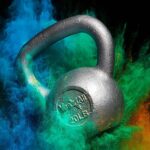When I graduated from college in 2021, I started to really notice changes in my mom and her memory.
I spent the majority of my life side by side with her. She is my best friend. She gets me like no one else. I look exactly like her. Our mannerisms are exactly the same. So, when we started to have more misunderstandings, it was very confusing. I felt like I was a teen again, based on how much we were fighting. She’d often respond, “I don’t understand what you’re saying.” (Looking back on this, she quite literally did not understand the words that I was saying. Her brain was slowly losing the ability to compute what was coming out of my mouth.)
It wasn’t just miscommunications, though. Suddenly, she started having difficulty traveling and calling Ubers, remembering my cousins’ names, or running simple errands. She spent her life as an attorney; she was an incredibly successful, very bright woman, so her intelligence compensated for her in the early stages, but it got to the point where I could tell that something was wrong. Other members of my family started to notice oddities too, but we struggled to come to terms with the fact that something was wrong. In October of 2021, I Googled aphasia and dementia for the first time, and I remember my stomach dropped and I thought, this is it.
It took some time, but eventually, in May of 2022, my mom was diagnosed with frontotemporal dementia, also known as primary progressive aphasia, at 63 years old.
The life expectancy is about seven years from diagnosis, but for how young my mom is and for how short of time it’s been, the disease has moved pretty fast.
At first, it made me feel mad. It made me feel frustrated. It made me feel isolated. Still, the diagnosis brought some relief. I was driving myself crazy trying to figure out what was wrong. I was unable to maintain friendships. I was bursting at the seams—and I had lost the ability to communicate with the person that had carried me on her back for 23 years.
One of the first things the doctor told me was, “This is the hardest part about my job, but I have to tell you, a 23-year-old, to go live your life and do everything that you said you were going to do and to do it for your mom.” Three years later, I ended up doing even more than I thought I would have—and I’ve done it for my mom every step of the way.
Year 1: Learning How To Navigate My Mom’s Diagnosis
The first year after the diagnosis was pretty crazy for my family and me. I moved to New York from Berks County, Pennsylvania about three weeks after we found out, with my dad stepping up to be my mom’s caretaker. Looking back, I realize that I was not okay. I was drinking more than I had in the past and I told everyone in my life that my mom was sick, which was so different from the approach that the rest of my private family used. But I found solace in people knowing what was going on.
The first year was about getting by and leaning on my three older siblings, their partners, and my dad for support. I was very, very sad, and I struggled a lot with feeling like I had been promised so much that I was never going to get: my mom will not be able to take care of my children, my mom will not pick out my wedding dress—she might not even be there for my wedding.
I felt very lost, and like so many other people going through a hard time, I turned to an endurance sport: My brother Drew and I decided to run the New York City Marathon for my mom and to raise money for Alzheimer’s. (Interestingly, my mom became an endurance athlete in her own right, walking 30 to 40 miles a week. We think it’s because early on in her diagnosis, when she could still comprehend more, the doctors told her it could help.) That was the first step to where I’m at now with my fitness journey. What happened after deciding to run the marathon has been a complete gift to me, and it’s turned into something so much bigger than I ever thought possible.
Year 2: Getting Serious About Running—And Finding Better Ways To Cope
I had never run more than two miles in my life consecutively seven months prior to running the New York City Marathon. The goal was to just get it done. It was my first-ever race. It was the first time I put on a bib to run.
I had never ever put myself in a position where I so publicly committed to doing something incredibly hard, and historically, I was a quitter. I have quit every single sport I played—and I used to hate running. It was extremely difficult. It was also the first time I had ever spent so many hours by myself without a distraction.
One of the hardest parts is getting out there for two hours and silently existing with yourself. There were so many times that I ended up stopping in the middle of a run to call my dad because I was overcome with sadness or anger. Running has helped alleviate the pain that I go through, but it’s also a constant reminder because I do it for my mom. It’s an emotional sport, but I’ve been able to show up for myself in ways that I never thought possible.
In order to train for a marathon, I went from being a moderate workout class attendee to running at least three days a week and getting serious about strength training. I became addicted to being able to wake up and move my body and know that I was doing the right things for myself. I started to make different choices based off of my long-term health, and began to see a lot of changes in that part of my life.
It was really about making small changes and moderation. Do I still eat candy and eat ice cream? Absolutely. But I slowly started to incorporate more whole foods. I got my blood work done. I ended up seeing a specialized nutritionist. I was drinking water purposefully for the first time in my life. I started doing a lot of work to understand my body—and this had an unexpected benefit, too. I used to have so many issues with my body image, but running has given me a sense of body neutrality and a better relationship with food.
I completed the NYC Marathon in November 2023—and raised over $12,000 dollars for the Alzheimer’s Association.
My max mileage was a 20-mile run, and I was not training for a pace. I think I finished the marathon somewhere between five and six hours, which is slower than many people, but my brother and I ran side by side. He was a Division 1 athlete and could have run it faster, but he stuck with me the whole time. Throughout this whole journey my entire family—all of my siblings and my dad—were critical in getting me across every finish line, both literal and metaphorical.
After New York, my brother and I decided that we wanted to run all six Abbott World Marathon Majors in honor of our mom. One of the most twisted, beautiful parts of all of this is that if my mom only really knew what I was doing, it would be crazy. She also never would have seen this life for me, and she would be so proud of it.
Year 3: Settling Into Healthy Habits And Taking On My Next Race
By year three, my life looked pretty different. I became inundated with the health and wellness space, and at the same time that I was documenting all of it on TikTok, so I got deeper into this community in New York. I started cold plunging, I started sauna-ing. I started getting acupuncture. “Longevity” has become a big buzzword in the zeitgeist, but when you have a parent with a degenerative disease, it’s easy to understand why.
When you have a terminal illness like my mom’s, there’s not much you can do about it. So, making sure that my mom is drinking antioxidants or maintaining some amount of physical strength might seem small, but when it’s your mom or it’s yourself, it’s worth a try. If there’s anything I can do to get my mom a seat at my wedding, I’ll feel like I’ve accomplished everything. I can’t give up now; they gave her seven years.
One of my biggest fears is that I’m going to get this disease. I have to watch my mom die of this condition that’s going to take everything from her, so if I can eat less candy, take more vitamins, and make sure I’m getting enough protein every day just to promote my overall health, I’m going to do it.
In 2024, I completed the Chicago Marathon—a whole 29 minutes faster—and raised $4,000 dollars for the Alzheimer’s Association.
This year I’m running the Berlin Marathon with my brother for Dementia Research UK (our goal is to raise $2,400, though we hope to surpass it), and I’ve really settled into a rhythm when it comes to training: I run four times a week and lift twice a week.
I feel like I am stepping into the version of myself that my mom would want me to become. It’s very hard to admit that my mom is sick and to admit to myself that this will never change. Year three was a big growing moment for me where I’m able to put aside some of my feelings of sadness and focus on taking care of her. Recently, I went home and was able to take her shopping and help with things my dad doesn’t necessarily know how to do.
My mom spent my whole life making sure that I was okay. She wore all of my pain on her back and she would lose sleep over high school bullies and boys that broke my heart, and she would sleep in my college twin bed with me when my roommates were excluding me or when I didn’t get the job I wanted for my sorority in college. This year has been a lot of growth and becoming that person for my mom. I feel like I have finally started to transition from kid to adult and caretaker.
My mom can’t talk anymore, so I think that everything that she was put on this earth to teach me with her words has been done—it’s been delivered—and that will continue to evolve with me over time. But now having my mom in the capacity that I do where she’s essentially nonverbal, I’m learning so much about myself and what I’m capable of.
A terminal disease puts everything in front of you. Being able to scope out my problems and understand how big they actually are is a gift that I’m so grateful for. I think very few people my age are afforded such an approach to life. I would give up every single belonging I have to take away this disease from my mother. I would give up every experience—everything. And since that’s not an option, I’m lucky that running a marathon has facilitated a healthy thought process and way to move forward, even if I never would have expected it to.
Read the full article here






